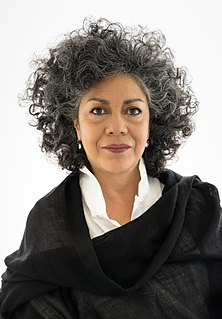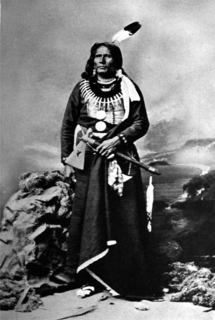A Quote by Mary Wesley
Writing Part of the Scenery has been a very different experience. I have been reminded of people and events, real and imaginary which have been part of my life. This book is a celebration of the land which means so much to me.
Related Quotes
It's been such a privilege and an honor to be writing this book [he Pleiadian Promise]. It's really changed my life, and it has absorbed my every waking moment for months. I'm going to be relieved to put that aside and just release it, because it's been a lot, not too much; it's been very glorious, but it has been a lot for me.
The intellectual part of religion is a private affair between every man and his Maker, and in which no third party has any right to interfere. The practical part consists in our doing good to each other. But since religion has been made into a trade, the practical part has been made to consist of ceremonies performed by men called priests ... By devices of this kind true religion has been banished, and such means have been found out to extract money, even from the pockets of the poor, instead of contributing to their relief.
Country' and 'city' are very powerful words, and this is not surprising when we remember how much they seem to stand for in the experience of human communities. In English, 'country' is both a nation and a part of a 'land'; 'the country' can be the whole society or its rural area. In the long history of human settlements, this connection between the land from which directly or indirectly we all get our living and the achievements of human society has been deeply known.
I think all people who've been on 'Strictly' like to talk to others who've been on the show and share their experience. And it's always exactly the same. You go through the same emotions. It never quite leaves you. It's always just here somewhere. It's a real magical thing to have taken part in. It's not so much a job - it's more of an experience.
He must have driven this way countless times, and yet he had no memory of the scenery. He must have been so caught up in the day's agenda, and arriving punctually at their destination, that the land beyond the car had been no more than a wash of one green, and a backdrop of one hill. Life was very different when you walked through it.
I do not at all believe in human freedom in the philosophical sense... Schopenhauer’s saying, ‘A man can do what he wants, but not will what he wants,’ has been a very real inspiration to me since my youth; it has been a continual consolation in the face of life’s hardships, my own and others’, and an unfailing wellspring of tolerance. This realization mercifully mitigates the easily paralyzing sense of responsibility and prevents us from taking ourselves and other people too seriously; it is conducive to a view of life which, in part, gives humour its due.
The people who want to be segregated are part of a different generation, and they have lived their lives. They are the stakeholders and guardians of the culture. Historically, the British tried to erase them from their land, but they survived. They survived the non-acceptance of the government, so they have always been very secretive. They have created a barrier, which they don't want to lose.
You have driven me from the East to this place, and I have been here two thousand years or more....My friends, if you took me away from this land it would be very hard for me. I wish to die in this land. I wish to be an old man here....I have not wished to give even a part of it to the Great Father. Though he would give me a million dollars or more I would not give to him this land....When people want to slaughter cattle they drive them along until they get them to a corral, and then they slaughter them. So it was with us....My children have been exterminated; my brother has been killed.
My books have been part of my life forever. They have been good soldiers, boon companions. Every book has survived numerous purges over the years; each book has repeatedly been called onto the carpet and asked to explain itself. I own no book that has not fought the good fight, taken on all comers, and earned the right to remain. If a book is there, it is there for a reason.
How few of us appreciate the fact that a very great deal of physical suffering in after life comes from bad mental training in childhood! I do not mean suffering of an imaginary kind; I mean disease which may entirely ruin a life which might have been of use to the world, and which surely would have been happier but for the lost health. Many a chronic invalid might have preserved his health had he been taught to use his brain properly when a child.
One might think this means that imaginary numbers are just a mathematical game having nothing to do with the real world. From the viewpoint of positivist philosophy, however, one cannot determine what is real. All one can do is find which mathematical models describe the universe we live in. It turns out that a mathematical model involving imaginary time predicts not only effects we have already observed but also effects we have not been able to measure yet nevertheless believe in for other reasons. So what is real and what is imaginary? Is the distinction just in our minds?







































